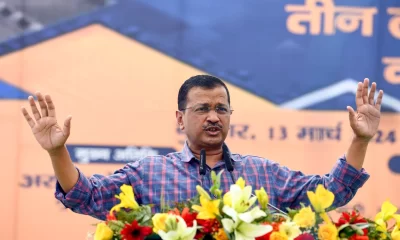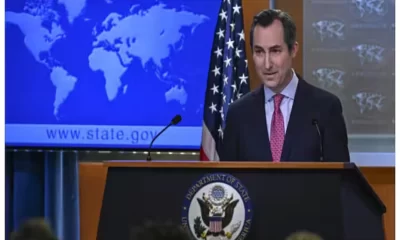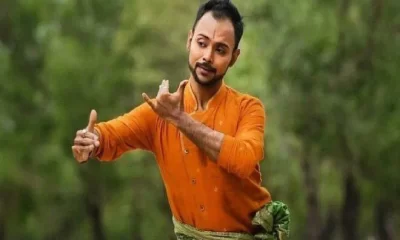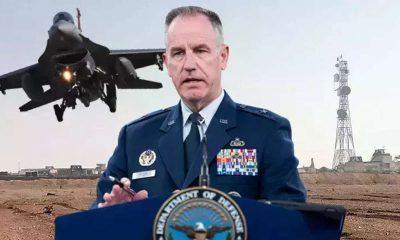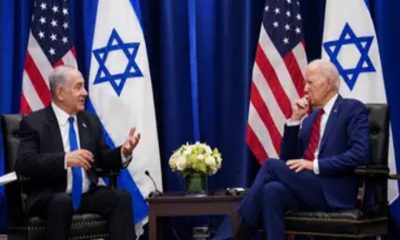Latest world news
Trump plans defence spending boost, but why?
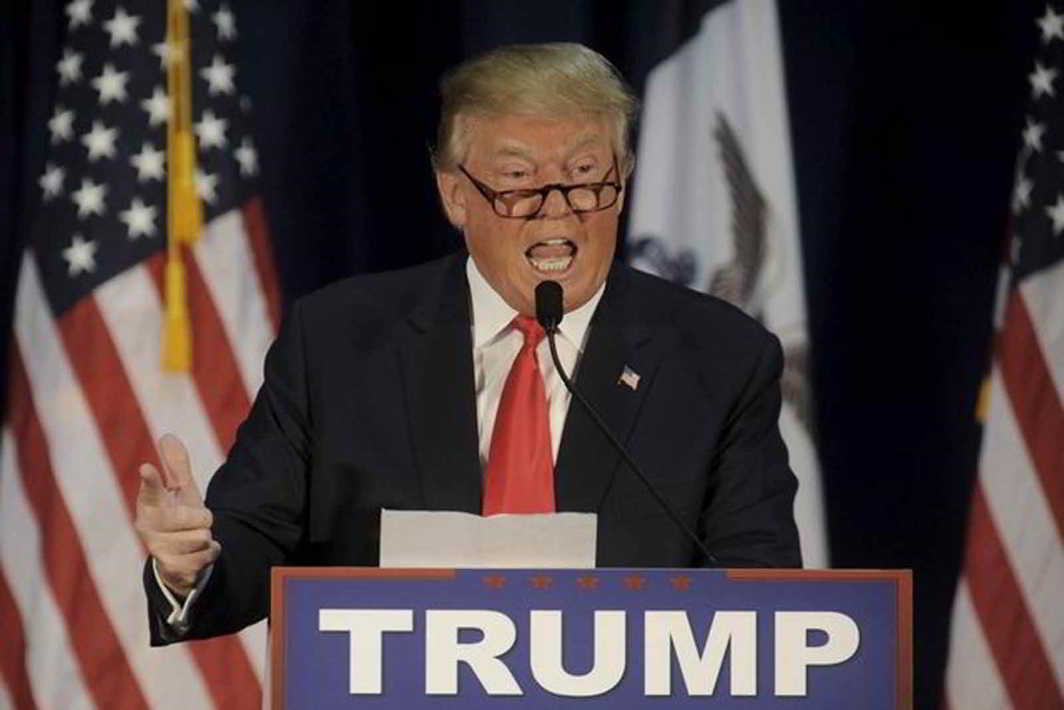
[vc_row][vc_column][vc_column_text]More military expenditure was part of his campaign policy, but does the US need it? Meanwhile, Democratic lawmakers feel such a big increase could take money out of critical domestic areas such as environmental protection and education
By Sujit Bhar
It is immaterial whether US President Donald Trump gets his billions to boost the US military. It has to pass through Congress and this is one case where a Presidential Executive Order may not be able to cut the funds ice. The issue is of Trump’s intent.
More military spending was part of his campaign policy. Trump is trying to make good this promise, as he tried with the Muslim ban.
However, the question being asked is who is Trump preparing to go to war with? ISIS doesn’t have a single fighter jet, the Russians are too risky to mishandle (and anyway Trump thinks Putin is cool), and a war with China will be mostly fought in economic corridors. Why does the US need such a huge boost?
Trump wanted a massive $ 54 billion boost on the $584 billion-plus that the US spent last fiscal. Trump wants to scrap the hugely mismanaged, and useless F-35 fighter jet project that has reportedly spent almost half a trillion dollars already. To this end, he is right.
While this Lockheed Martin mega-misadventure has bled the military establishment hugely, governors of a multitude of states have been steadfastly rooting for it, because the company provides huge employment in those states, through its several ancillary units. That is why Trump has said that he would like to see the end of the F35 focus and concentrate on the Raptor project instead.
At this point, as it stands, the US defence spending could go up to just $603 billion in total, a growth of just 3 percent, skipping slightly over the inflation rate of 2.5 percent. That is a big comedown from the proposed ten percent increase ($54 billion).
Democratic lawmakers feel such a big increase could take money out of critical domestic spending in environmental protection and education.
To find the reason behind Trump’s unusual request for a huge boost one would not have to look beyond US boundaries. Trump’s call for new aircraft, new aircraft carriers and new fleets for the Navy makes little sense around the world where raging conflicts are of low intensity and not even involving heavy artillery or missiles.
The US, at this point, should not be scared of any hidden enemy. The Cold War is over and China is still far away in the future, if at all. But there are jobs to be created at home, there are Governors who have become too powerful, to be taught lessons. There are industrial friends to be pacified. Many of them funded his campaign and now they want their pound of flesh.
A defence spending boost could answer a big chunk of such questions. It will also boost the already huge arms export of the US. The US will not benefit in a peaceful world, and Trump, like all presidents before him, knows this well. When oil is cheap, there is little option to war.
The Democrats are putting a spanner in the works, but the just concluded eight Democratic years had seen huge spending in war preparations. Against whom?
Nobody needs to get answers to such questions. The way it is going the US will be prepared for a full-fledged alien invasion. Maybe Americans need to get employed soon enough for that.[/vc_column_text][/vc_column][/vc_row]
Latest world news
World Earth Day 2024: Google Doodle showcases aerial view of planet’s natural beauty
Google celebrated Earth Day 2024 with a special doodle featuring an aerial view of our planet’s biodiversity.
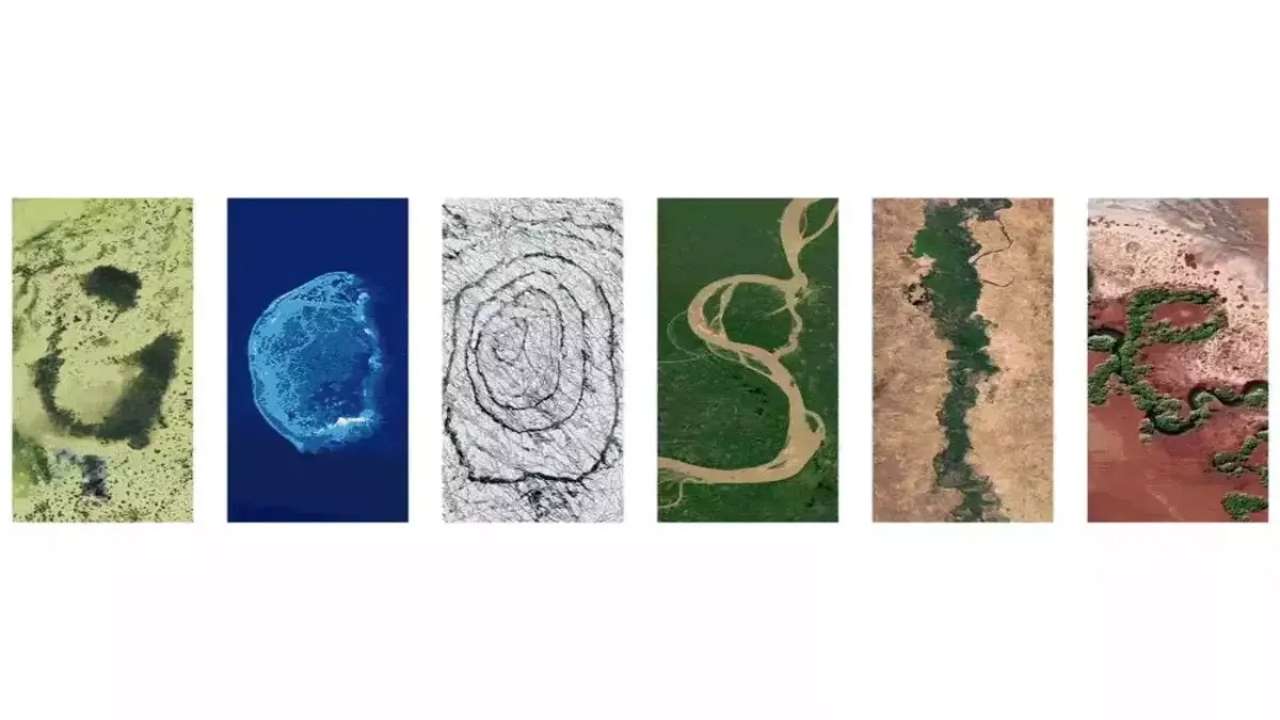
Google shared a doodle today to celebrate World Earth Day 2024, which showcased aerial photos of the planet’s biodiversity and natural beauty. Google reminded us of the importance of protecting planet earth for future generations with the help of this doodle.
The Google letters depict specific locations across the globe where people, communities, and governments work every day to help protect the planet’s natural beauty, biodiversity, and resources, according to the explanation of the annual Earth Day 2024 doodle on their website.
It said, these examples remind us that there’s much more to do to address the climate crisis and biodiversity loss, but also offer the promise of hope and optimism.
The islands of Turks and Caicos are represented by the letter “G.” The islands’ conservation efforts are concentrated on protecting important regions for biodiversity and addressing persistent environmental problems.
The largest reef in the southern Gulf of Mexico and a UNESCO biosphere reserve, Scorpion Reef National Park, is represented by the letter “O” in the Mexican flag.
The letter “O” features Iceland’s Vatnajokull National Park, which was designated as a national park in 2008 following decades of advocacy. The ecology within and surrounding the biggest glacier in Europe is safeguarded by this UNESCO World Heritage Site.
The letter “G” has the Jau National Park in Brazil on it. It is a UNESCO World Heritage Site and one of the biggest forest reserves in South America.
The Great Green Wall of Nigeria is represented by the letter “L,” and the Pilbara Islands Nature Reserves of Australia are represented by the letter “E.”
Meanwhile, Earth Day is a worldwide event that promotes protection of the environment every year. April 22 serves as a reminder of the importance of conservation efforts and sustainable practices to guarantee a healthier world and a brighter future.
The occasion inspires people across the world to come together and take action to protect the environment, strengthening our bonds with nature and promoting good change.
Latest world news
Bigg Boss 14 contestant Rahul Vaidya struggles walking in knee deep water, compares Dubai rains with Mumbai floods
Singer and TV personality Rahul Vaidya was recently stranded in the Dubai rains.

Rahul Vaidya, who was in Dubai ahead of his show which was scheduled to take place today, left the country due to heavy rains and reached Kolkata. The artist shared on social media his encounters in the UAE city, including challenges like walking through knee-deep water. Rahul provided an update regarding the heavy rainfall in Dubai on his Instagram profile.
The Bigg Boss 14 contestant revealed that he was in Kolkata and prepared to do an evening performance. Recalling the terrifying period he went through, Vaidya said there was a lot of confusion and panic in Dubai. The situation was similar to that when heavy floods hit Mumbai in 2005.
Vaiday also posted seval other images and videos of cars that were underwater and flooded roadways. The Bigg Boss 14 contestant, who shared his ordeal, claimed that even though it had just rained for two hours, the situation was dire.
In one of the video, which went viral he can be seen struggling in walking in knee-deep water. He can be also seen holding his sneakers in one hand and with other hand he was seen managing other things.
This is the result of the two hours of rain that it had, he can be heard saying in the video. Vidya also said he dosen’t believe Dubai is accustomed to a lot of rain. Everything had stopped working, he remarked.
After taking part in the first season of the singing reality show Indian Idol, Rahul Vaidya gained widespread recognition. In addition to Bigg Boss, he took part in Khatron Ke Khiladi 11.
Meanwhile, heavy rains that triggered flooding in the UAE and Bahrain, which left 18 people dead in Oman on Sunday and Monday, have paralyzed the financial hub of the Middle East, Dubai.
A lot of incoming flights were diverted from Dubai’s international airport because of the rain. At 7:26 p.m., the busiest airport in the world for foreign visitors stopped accepting new arrivals; a gradual resumption was announced for more than two hours later.
Images of planes navigating flooded tarmacs are making the rounds on social media.
According to pictures shared on social media, the flagship malls Dubai Mall and Mall of the Emirates both experienced heavy floods, while at least one Dubai Metro station had water up to the ankles.
There were several road collapses, severe flooding in residential areas, and numerous reports of leaks from windows, doors, and roofs.
Due to the unfavourable weather, schools around the United Arab Emirates were forced to close, and as more storms are predicted, the closures are anticipated to last until Wednesday. The government of Dubai allowed its staff to work remotely till this Wednesday.
Latest world news
Dubai sky turns green during storm in UAE, video goes viral
The UAE witnessed record-breaking rainfall on Tuesday and the National Centre of Meteorology recorded 254 mm of rainfall in less than 24 hrs in the Khatm Al Shakla area in Al Ain.

1 person was killed in UAE as it witnessed heavy rainfall on Tuesday, stranding commuters, flooding roads, disrupting trains and flights and resulting in water leakage from mall ceilings. The UAE witnessed record-breaking rainfall on Tuesday and the National Centre of Meteorology recorded 254 mm of rainfall in less than 24 hrs in the Khatm Al Shakla area in Al Ain. It is being said that the rainfall was the highest documented since the start of data collection in 1949.
The heavy rainfall in UAE came days after a similar situation in neighbouring Oman, where 13 people were killed in flash floods. Many parts of Oman saw torrential rains, which caused students to be trapped in buses and swept away motorists and trapped people in their homes.
Videos from Dubai circulating on social media showed widespread waterlogging on roads in Abu Dhabi, Dubai and other important cities. This left daily commuters in cars and other vehicles struggling to get back home. Dubai metro station too was seen flooded and closed.
One such video circulating on social media shows the aerial view of the city of Dubai from the top of a building. In the video the stormy winds are seen blowing over the city of Dubai. As the storm intensifies the Dubai sky turns green and ultimately gets covered by heavy rainfall. The video has gone viral on social media with more than 1.1 million views.
Another video showed water leakage from the ceilings of shopping malls, flooding the floors and destroying goods. A video which was shot in the famous Mall of the Emirates, showed pieces of ceiling falling as the rainwater gushed inside. Videos from many outlets of the Deira City Centre mall chain showed escalators being rendered unusable. Majid Al Futtaim, the company which owns the Mall of Emirates, said that the shopping complexes have been kept open and the customers are being sent away from the flooded areas.
-
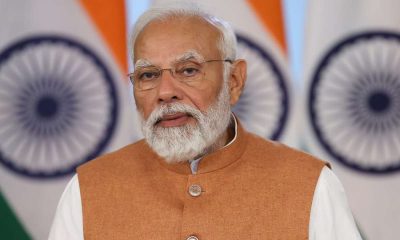
 2024 Lok Sabha Elections12 hours ago
2024 Lok Sabha Elections12 hours agoPM Modi calls for high voter turnout in second phase of Lok Sabha elections 2024, says your vote is your voice
-
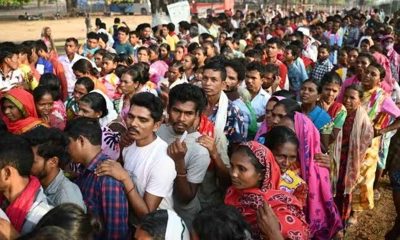
 2024 Lok Sabha Elections6 hours ago
2024 Lok Sabha Elections6 hours agoLok Sabha election 2024: Nearly 50% voter turnout recorded in second phase till 3 pm
-

 India News10 hours ago
India News10 hours agoSalman Khan house firing case: NIA interrogates arrested shooters Sagar Pal, Vicky Gupta for three hours
-
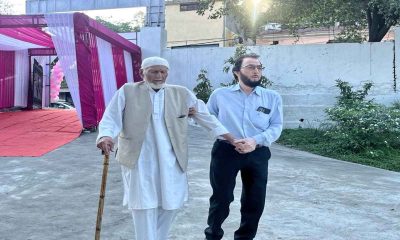
 2024 Lok Sabha Elections9 hours ago
2024 Lok Sabha Elections9 hours agoLok Sabha elections 2024: 102-year-old man walks to polling booth to cast his vote in Jammu
-

 2024 Lok Sabha Elections4 hours ago
2024 Lok Sabha Elections4 hours agoElection Commission books BJP MP Tejasvi Surya for seeking votes in the name of religion

